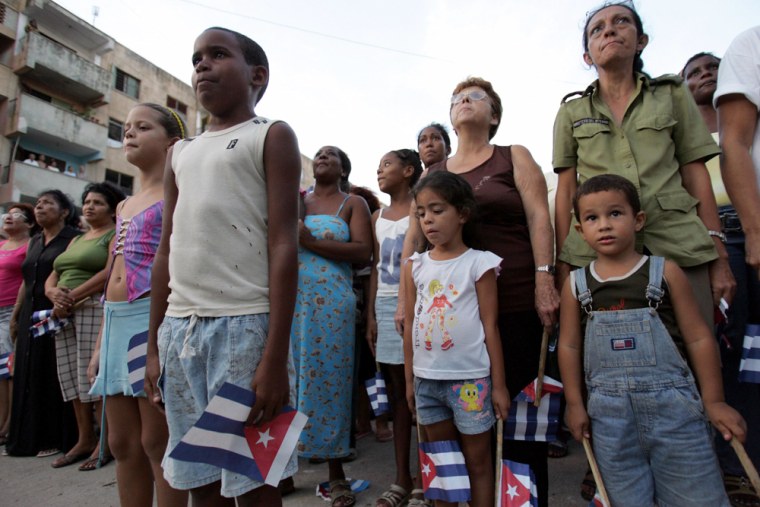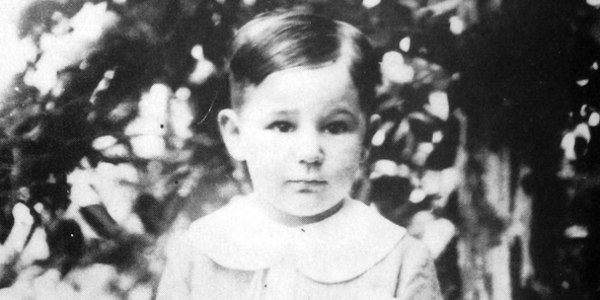HAVANA — This is far from the birthday Fidel Castro’s loyalists planned for when the Cuban leader turns 80 on Sunday.
Havana intended to throw a major bash with plenty of pomp, circumstance and a dash of the fanciful.
Coming to town were partygoers from overseas — famous writers and actors, heads of state and friendly CEOs, and even a delegation of 40 Turkish men —oddly all named Fidel — who covered the airfare with private donations.
The national festivities were to stretch across days — from an academic symposium to look at the iconoclast’s mark on the world, to nights of outdoor concerts with top Latin artists. Art galleries framed photos of his green khakis and bushy beard image, and thousands of little kids hoped to eat cake doled out by professional clowns.
Instead, the guest of honor remains hospitalized in an undisclosed location, tucked far away from public view as he recovers from emergency abdominal surgery.
The party now has been postponed until December, when Castro is expected back on his feet.
But some suggest it may be close to being over.
Some celebrate expected early demise
A noisy fiesta erupted some 90 miles away to celebrate Castro’s rumored death instead of acknowledging his life.
Closer to home, an early birthday wish ran across the electronic ticker at the U.S. diplomatic mission, proclaiming: “All Cubans, including those under the dictatorship, can count on our help and support.”
It’s been just two weeks since Castro’s operation and, in engineering student Orlando Lopez’s opinion, probably too soon for most people to pay attention to Washington’s message.
“The Americans should wait and see what happens before they bury Fidel,” said Lopez, 19, confident the communist leader would pull through.
At the same time Lopez does not envision his future in Cuba.
Like thousands of other college students, he plans to take his degree elsewhere — to Canada or Chile or even Australia — “a place I can earn money.”
Professionals complain constantly that their low salaries in Cuban pesos lag far behind the cost of living, and that they can’t buy essential items available only in convertible currency. Lopez’s desire to emigrate, he insists, is not political but economic.
Questioning the future
Like 70 percent of the people here, Lopez knows no other leader or government system. Born after Castro swept to power in 1959, he said he and his country have only experienced “hard times.” But he is quick to absolve Castro from blame. “He’s not at fault.”
True or false, during almost half a century of rule, Castro has left his stamp on every aspect of life here — leaving people like Ariel Dacal, 32, to question the future.
Slideshow 34 photos
Fidel Castro: The Life of the Cuban Leader
“It can’t be the same and it shouldn’t be the same,” he said.
A social historian, Dacal, does not advocate a return to capitalism. Quite the opposite, in fact, he gripes that Cuba is not egalitarian enough.
He advocates “collective leadership” with a big dose of “popular participation” and “popular control over decisions” — in other words, more democracy within the communist context.
No one can fill Castro’s shoes, he ruminates, nor should the country try.
Castro just might agree. Temporarily abdicating power after his operation, he named not only his younger brother Raúl but six trusty confidantes to run the country. At first glance, it looks like he’s turning his one-man decree into collective rule.
Look just a bit deeper before drawing any conclusions, suggests leading dissident Oswaldo Payá, 54.
“This represents no change at all. … For three generations we have lived without rights, under a regimen in which Castro and the Communist Party have run our lives,” said Payá.
Pronouncements are not enough, insisted Payá. “What do we want? Peaceful change—through dialogue, with Fidel dead or alive. That’s up to God!”
Engaging Cuba’s youth
With every year that passes, Castro accelerates his push to get young Cubans involved. The goal — to preserve his legacy and energize a generation seemingly more interested in the material than the political.
Last year, Castro came clean to a university audience: Cuban society was rife with corruption and theft. He challenged them to help set things straight.
“This revolution can destroy itself … and it would be entirely our fault,” said Castro.
One example he gave was that half of all gasoline sales at government pumps ended up in people’s pockets instead of public cash registers.
To curb the vice, Castro fired every last gas station attendant and hastily trained some 30,000 young people to work the pumps. Within the month, gas retail revenues had jumped over a quarter of a million dollars. His youth army was on a roll.
Or, is it?
Cuban American sociologist Nelson Valdés believes that the assumption that “youth are revolutionary by nature” gets turned on its head in Cuba. Other factors play a role including income, environment and life experiences.
Young adults born after 1980, who spent their formative years during what the government here calls the “Special Period” — after the Soviet Union collapsed, sending the economy into a tailspin and everything was in short supply — may view Fidel Castro and his government in a different light than their parents.
“People born since 1980 have not seen the best times or results of the revolutionary regime,” said Valdés.
Lydia, 19, who asked not to publish her full name, pumped gas for almost a year and “hated every moment.” She answered Castro’s call because a parent had insisted the high school dropout find work.
“My mother made me do it,” she laughs. “She’s a militante and agrees with Fidel that the stakes are high.”
Fighting until the end
Since the president took to his sick bed, Lydia’s mother and thousands of other Cuban Communist Party members have poured into the streets to stage pro-government rallies across the island.
“Retirees are willing to die fighting until our last drop of blood,” said Luis Martell, 89,a former trade union official.
“We have taken measures to guard against the enemy within and without,” warned Serge Medina, 40, a local Communist Party official.
As the speakers droned on at a recent rally, Lydia edged away from the crowd towards an ancient park bench. One could sense apathy in the teen, but deep concern as well.
“I’m worried about him. There is no one who comes close,” she said. “I can’t imagine what we will do without him.”
The idea, she admitted, frightened her.

